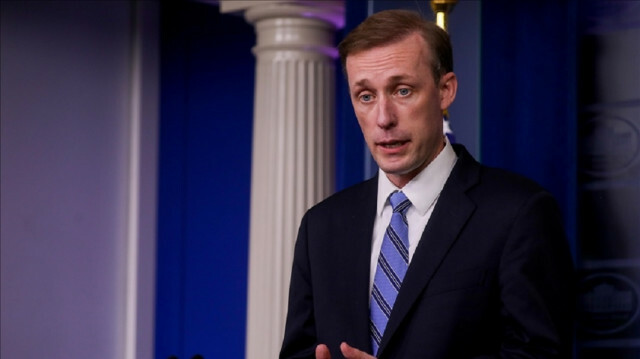
National security advisor met high representative for Bosnia and Herzegovina to discuss stability, peace, economy
The US national security adviser reaffirmed Washington's commitment to Bosnia and Herzegovina's sovereignty and territorial integrity on Monday in a meeting with the high representative for that country.
Jake Sullivan underscored the US' "strong support" for High Representative Christian Schmidt and his mandate to "oversee civilian implementation of the Dayton Peace Accords," US National Security Council spokesperson Emily Horne said in a statement.
Sullivan and Schmidt "emphasized their shared commitment to Bosnia and Herzegovina’s sovereignty and territorial integrity," she said.
They also discussed the importance of functioning institutions to deliver services, ensure stability and the rule of law, and provide the basis for peace and economic opportunity for all the people of Bosnia and Herzegovina, agreeing on the need to counter corruption while supporting civil society.
- Dayton Peace Accords
The accords, initiated at the Wright-Patterson US Air Force base near Dayton, Ohio, on Nov. 21, 1995, ended a brutal civil war in Bosnia that resulted in 100,000 deaths during three-and-a-half years.
But nearly 3.5 million people are currently living in one of the most fragile and multi-ethnic states in the world, facing economic difficulties and political deadlocks due to a complex constitutional structure.
Dayton built Bosnia and Herzegovina as a single state, but consisting of two entities -- the Croat-Muslim Federation of Bosnia, and Republika Srpska -- as well as Brcko, a neutral, self-governing canton.
The accords, which were agreed by then-Serbian President Slobodan Milosevic, Bosnia’s Alija Izetbegovic and Croatian leader Franjo Tudjman, also established several mechanisms that institutionalize Bosnian, Serb and Croat divisions.
The tripartite Presidency of the country is a clear example of the structural complexity.
Hello, the comments you share on our site are a valuable resource for other users. Please respect other users and different opinions. Do not use rude, offensive, derogatory, or discriminatory language.
The floor is all yours.








